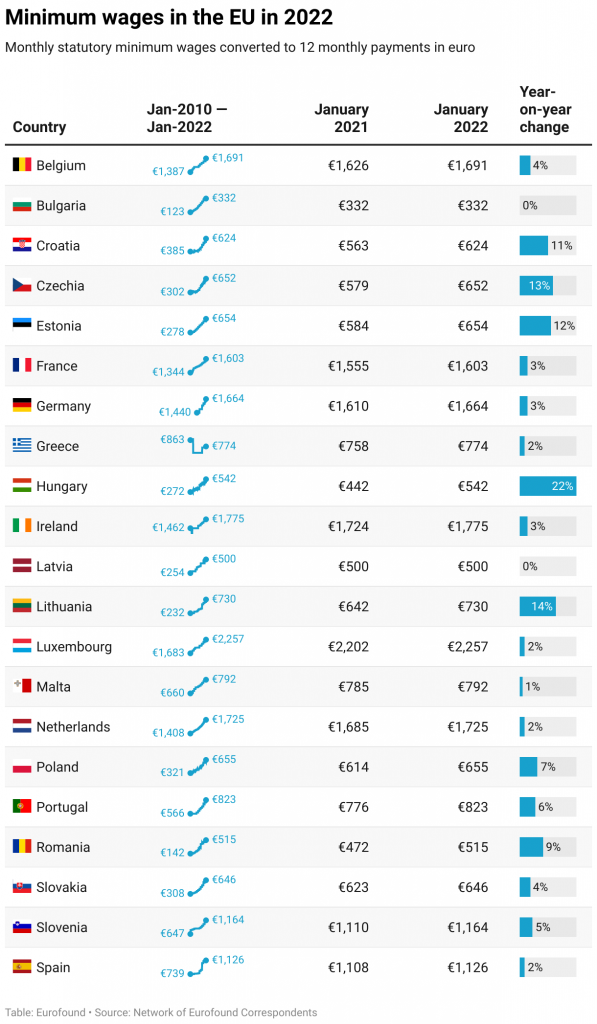Malta’s minimum wage is stalling

Minimum wage earners in Malta have had the third lowest salary increase in the EU in 2022, with only Bulgaria and Latvia faring worse where minimum wages were frozen. However, the picture is not so gloomy when looking at the overall situation whereby Malta’s minimum wage ranks in 10th place among the 21 members states who have a statutory minimum wage.
This comparison was made by Eurofound which has been mapping the respective fluctuations since 2010. Austria, Cyprus, Denmark, Finland, Italy and Sweden are not included in this figure as they do not have a statutory minimum wage.
In 2022, the minimum wage in Malta increased by €1.75 per week (COLA) which translates to a 1% rise and is equivalent to 12-equal monthly salaries of €792. The amount pales in comparison when compared to Luxembourg where the respective figure stands at €2,257 which is nearly three times as much. On the other hand, Bulgaria is bottom of the list with a monthly minimum wage of €332. Though Malta ranks ahead of Eastern European countries, in recent years the latter have reduced the gap considerably.
This trend has been source of concern in Malta, whereby the workers’ spending power is being eroded. Moreover, the ongoing spike in the cost of living has accentuated these fears even more, prompting the government to take one-off measures like vouchers, €100 cheques and a proposal for a new mechanism to compensate low-income households albeit in exceptional circumstances only. Nonetheless, the loss in spending power is also being felt higher up, especially among the middle class. While for minimum wage earners the €1.75 COLA represents a 1% increase, for those who have €20,000 salary this represents just 0.5% increase. These amounts pale in comparison with the inflation rate with the latest figures for February showing an annual increase of 4.22% of which the biggest contributor was food with 8% when compared to February 2021.

This slow growth in wages emerges when comparing the current situation with that in 2010. During this 12-year gap the minimum wage in Malta increased from €660 per week to €792 or 20%. However, in countries like Bulgaria the increase was much more pronounced from €123 to €332 per week. Similar patterns were observed in the likes of Latvia, Romania, Hungary, Croatia, Slovakia, Estonia, Poland and Lithuania. Greece was the only exception as the minimum wage decrease, but this was due to the aggressive austerity measures following the 2015 debt crisis.
Apart from COLA which is given to employees across the board regardless of their income, the only adjustment to the minimum wage in Malta was made in 2017. However, workers only benefit from this agreement after a year in employment. Further analysis of the Eurofound data reveals that unless major decisions are taken to overhaul Malta’s minimum wage, it is set to fall further down the list as in other member states the annual increase is much higher including in countries which are already well ahead of us. As a matter of fact in France, Germany, Ireland and Belgium the minimum wage has increase by 3% this year which translates to around €50 per month.
